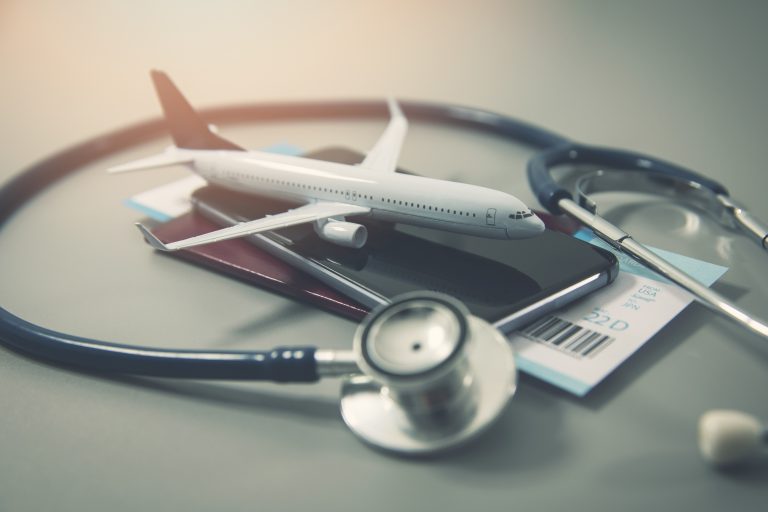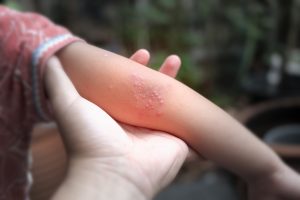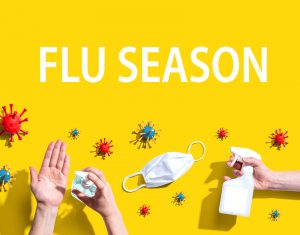The end of year festive season is a popular time for many people to travel, visiting friends and family. Health care providers and travellers returning from within the southern Africa region and further afield should be aware of the infectious disease risks related to travel.
Travellers returning from the southern African region should be aware of malaria, cholera, typhoid, African tick bite fever, East African trypanosomiasis and various mosquito-borne viruses (e.g. dengue, chikungunya, West Nile).
- Malaria is the most important travel-related infection to consider at this time, given that it is high season in southern Africa for both residents of malaria transmission areas and travellers, and the need for rapid diagnosis and urgent treatment to prevent severe malaria and deaths. Most persons presenting with malaria in South Africa either acquire the infection in malaria risk areas within the country or have a history of travel to neighbouring countries, with the highest risk in Mozambique. Malaria risk areas within South Africa are the lowveld areas of Limpopo, Mpumalanga and northern KwaZulu-Natal provinces. Any person who develops a fever, chills, headache, and muscle/joint pain within 10 – 30 days of returning from a malaria-endemic area must seek medical attention urgently and have a malaria blood test as soon as possible. Travellers must inform their health practitioners of recent travel. Medication to prevent malaria, while highly efective, may not be 100% protective. Rarely, malaria-infected mosquitoes may travel surprisingly far (by road, rail or air transport) and can cause infection in distant places (called ‘odyssean malaria’). In December, two clusters of odyssean malaria were reported in Gauteng Province. Healthcare workers should be aware of malaria as a possible diagnosis in persons with fever and unexplained progressive illness, whether or not there is history of recent travel to a risk area. Immediate notification of all malaria cases is mandatory in South Africa.
- Typhoid and cholera outbreaks are ongoing in Zimbabwe. Any person who develops sudden, severe watery diarrhoea within 5 days of returning from a cholera-endemic area should be tested for cholera. Typhoid symptoms (intermittent fever, headache, abdominal pain, nausea, and diarrhoea or constipation) are less specific, but can resemble malaria. Any person presenting with these signs within 2-4 weeks of returning from a typhoid-endemic area should be tested for typhoid. Both cholera and typhoid cases should be notified immediately.
- African tick bite fever is a common and potentially dangerous infection that people can acquire when visiting the bush or farms anywhere in Africa. Clinically, tick bite fever can resemble malaria (fever, headache) at first, but is usually accompanied by an eschar (black mark or scab surrounded by inflamed skin – site of infected tick bite) and painful regional lymph nodes, and sometimes a skin rash. Doxycycline therapy is highly effective.
- East African trypanosomiasis (sleeping sickness) is an uncommon but potentially fatal infection caused by a blood parasite transmitted by tsetse flies. The infection is occasionally seen in visitors to game parks along the Zambezi Valley in Zimbabwe, the Luangwa Valley in Zambia, and various game parks in Malawi and other East African countries. An inflamed local skin lesion at the bite site and malaria-like symptoms are typical, disease progression is very rapid and urgent specialised management is required.
- Some mosquito-borne virus infections (e.g. dengue, chikungunya, West Nile) circulate periodically in southern Africa and can resemble malaria. Any person who develops a fever, headaches, muscle/joint pain or a skin rash should see a doctor. Although there is no specific treatment, it is important in these cases to rule out malaria, which is frequently fatal without treatment.
Dengue should also be considered in persons with fever, muscle pain and on occasion a rash, who have travelled to Thailand, India, others countries in SE Asia, as well as to Central and South America. Most infections are mild and will resolve in a few days.
The temperate countries in the northern hemisphere (United Kingdom, Europe, North America) are experiencing their influenza season, and influenza should be considered in any person who develops upper respiratory tract symptoms, fever, and muscle/joint pain within a week of return from that region.
- The resurgence of measles globally is a serious concern. The Americas, Eastern Mediterranean region and Europe experienced protracted outbreaks recently. For returning travellers, this means that any unvaccinated person (of any age) can become infected and then spread the infection to other susceptible people as they travel. It is usually seen in children or adolescents, and symptoms are a rash, fever, conjunctivitis and coughing. Healthcare workers are advised to test for measles if it is suspected so that the case can be isolated to prevent disease spread. Cases should be immediately notified so that ring vaccination can be performed in the affected community.
For more information, please refer to Diseases A – Z on the NICD website: nicd.ac.za





